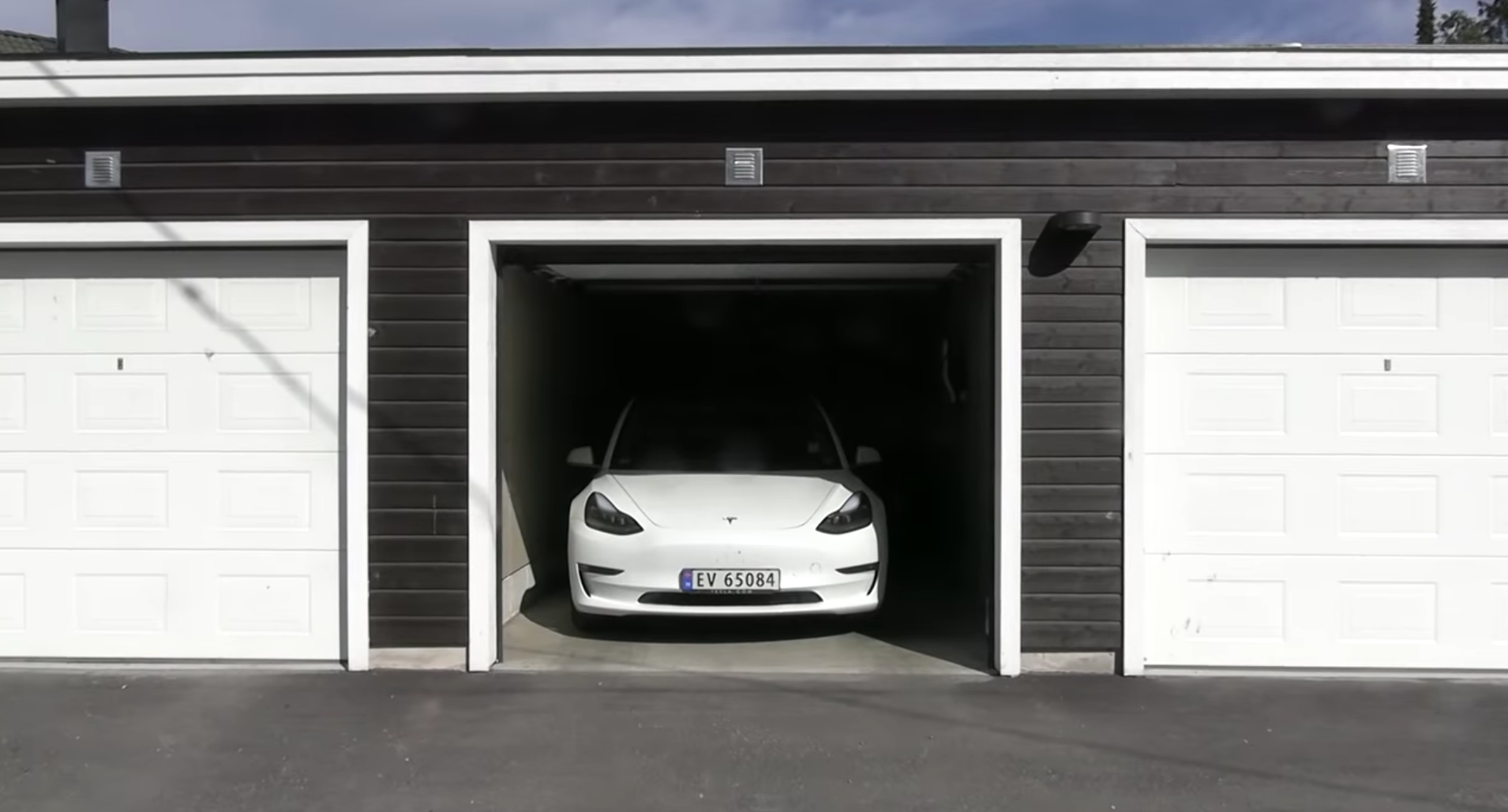Read The Full Article On: Caranddriver
We go electric, power up the station wagon, and find a few more Porsches to talk about.
For July’s issue, we assembled the most important cars ever built, working forward from 1955, when we were founded as Sports Car Illustrated, and the modern auto industry came of age. These are Car and Driver‘s GOATS – the Greatest of All Time. Today: 2010s.
2011 Cadillac CTS-V Sport Wagon
The specs alone don’t always tell the story, but they do here: 556 horses and an available six-speed manual in a rear-drive station wagon. That’s 51 more horsepower than the contemporary Corvette Z06 had. And the Caddy’s supercharged 6.2-liter meant that vastly more horsepower was just a smaller pulley away. The driving experience didn’t disappoint, either. Standard magnetorheological dampers balanced a civilized ride with track-attacking handling, Brembo brakes hauled things back to sanity after low-12-second quarters, and communicative steering justified Cadillac calling it a “sport wagon.”
“Maybe the best combination of performance, versatility, and comfort in automotive history. This is one of the greats, folks.” —Eddie Alterman, C/D, June 2012
But nothing justified the long-roof V’s existence. Cadillac built only 1764 CTS-V wagons during the car’s four-year production run. Somewhere out there is a silver one with a “Save the Manuals!” sticker and a few signatures hidden behind the trim in the spare-tire well. It’s our long-term test car that we helped build and still dearly miss. If you’ve got it, give us a call. We’d appreciate a reunion. —Jared Gall
Values, market analysis, auction results, and more on the Cadillac CTS-V at Bring a Trailer.*
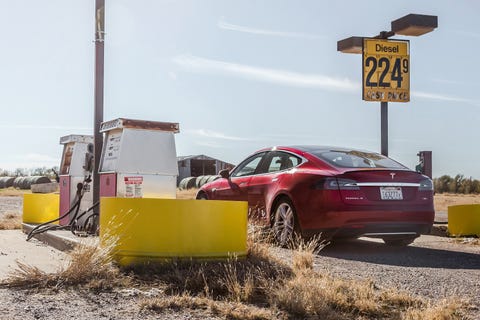
2012 Tesla Model S
Given Elon Musk’s reputation for missing deadlines, it’s easy to forget that the Tesla CEO made his name by delivering what many believed was impossible on any timeline. In 2010, Musk claimed that Tesla’s seven-passenger EV would travel 300 miles on a single charge, hit 60 mph in 5.6 seconds, and start at less than $60,000. It took time and multiple variants to hit those numbers, but the Model S eventually cleared each of those hurdles and did something even more unlikely: It proved that electric vehicles can be desirable and cool.
Tesla found the winning formula by imitating Apple and luxury automakers while other brands futzed with cheap electric cars based on existing models. And as it rethought the car itself, Tesla also rethought everything about building and selling cars. The Silicon Valley startup doesn’t advertise but has somehow fostered a fan base that’s more loyal than the Manson family. Tesla has pursued a vertically integrated manufacturing approach abandoned decades ago by Detroit, Japan, and Germany. It built a sprawling network of fast chargers to make long-distance travel practical. It charges four-figure sums for unfinished software features, some of which will be available—maybe—at an undetermined time in the future. And the company constantly improves the vehicles already on the road with over-the-air updates.
That culture of continuous improvement has made it hard for every other automaker trying to make a statement with an electric vehicle. Musk’s company currently sells one car that has an EPA range of 373 miles, another that will clear 60 mph in 2.5 seconds, and yet another that’s priced at $41,190. And all the competitors building electric cars are still scratching their heads trying to match Tesla’s technology and its success to catch up with a car that came out eight years ago.
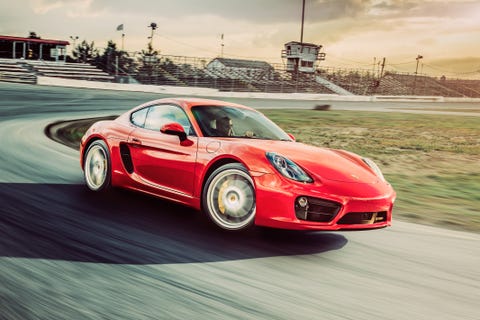
ROY RITCHIECAR AND DRIVER
2013/2014 Porsche Boxster/Cayman
Porsche’s mid-engine two-seaters really came into their own with the 981 generation. Lighter and higher tech than before, with aggressive styling and the crackling wail of a high-revving naturally aspirated flat-six, the third-gen Boxster and second-gen Cayman were simply two of the most finely honed driving machines ever created. Even with the adoption of electrically assisted power steering, their helms were models of precision and directness. Their chassis were sublime, responding to driver input with almost telepathic fluidity and control. And they had the presence and performance to finally step out of the pricier 911’s shadow as the brand’s purest sports cars. Today’s 718 Boxster and Cayman—two of the best-driving cars money can buy—bring even more power and grip. But their turbocharged fours filter out some of the mechanical zest that made their predecessors so memorable. For pure driving satisfaction, the 981s are king. —Mike Sutton
Values, market analysis, auction results, and more on the Porsche Boxster and Porsche Cayman at Bring a Trailer.
“What makes the new Boxster S one of Porsche’s greatest achievements is its all-encompassing, ever-present entertainment value. Consider this the sports-car enthusiast’s gold standard, rapidly approaching platinum.” —Don Sherman, C/D, September 2012
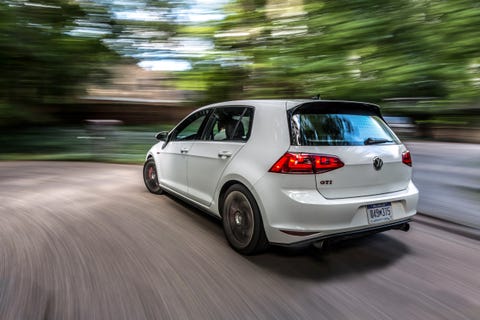
2015 Volkswagen GTI
The new GTI looked a lot like the old one in pictures and on paper when this car debuted: strong turbocharged 2.0-liter, buyer’s choice of a gratifying manual or a quick-shifting dual-clutch automatic, and a sensible and inoffensive design. Yet the seventh-generation GTI, built on the versatile MQB architecture, gelled even better than its forefathers. Volkswagen mastered the hot-hatch formula with the 2015’s balance of practicality, upscale maturity, and childish fun. And then it sold the car at a bargain starting price of $25,815.
The GTI’s superpower is its ability to transform everyday driving into an occasion with its capable handling and energetic power. Behind the wheel of a GTI, even going to the dentist is fun. Factor in its affordability and efficiency and it’s the ultimate rational choice for people with an irrational love of driving. —Austin Irwin
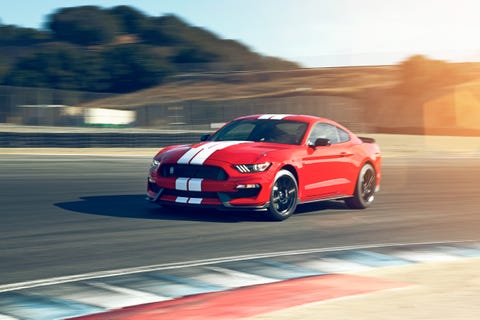
2016 Ford Mustang Shelby GT350
While it might not be the rarest or most powerful Mustang conceived in Dearborn, the modern GT350 is easily the most exotic. When the car was born, its heart beat to a different rhythm. Wedged beneath the hood was something the Motor City had never put in a production car: a hand-built 526-hp V-8 with a flat-plane crankshaft and an 8250-rpm redline. That’s the stuff that gives prancing horses their distinct note. But from the first push of the start button, it was apparent that this pony drinks from a different trough. The exhaust crackles to life, roars, and settles into a lumpy idle that separates it from those rich and creamy Ferraris. And that’s fine. Charisma is often lost in modern engines, and the Voodoo V-8 overwhelmingly stirs emotion.
More than just housing this storied engine, the GT350 and track-rat GT350R are legit sports cars. A six-speed manual is the only way to switch gears, and it will take a beating better than the Detroit Lions. The microsuede steering wheel connects the driver to the road; responsive with feedback, the GT350 eagerly changes direction and rockets through apexes. The R, shod with gooey Michelin Pilot Sport Cup 2 rubber and lightweight carbon-fiber wheels, pulls 1.10 g’s on the skidpad and, with the help of Brembo binders, stops dead from 70 mph in an abrupt 146 feet. Plus, it makes the run to 60 in 3.8 seconds. All this for under $64K sounds great, right? Sadly, the price has jumped more than $11K since 2016. But if that’s what it takes to keep Ford from sending this pony to pasture, it’s worth it.
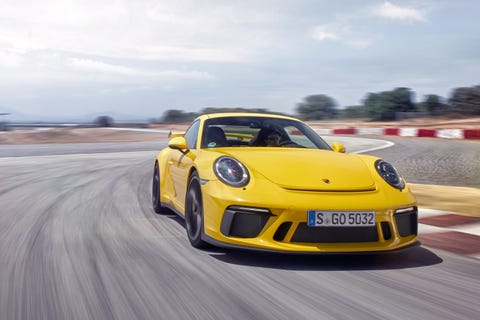
GREG PAJOCAR AND DRIVER
2018 Porsche 911 GT3
Among all the outstanding 911s over the years, the 991.2-generation GT3 stands out as one of the best. There are few modern cars that impart such a cathartic driving experience, and even fewer that do so by way of a six-speed manual and a high-revving naturally aspirated engine. The 4.0-liter flat-six in the GT3 produces 500 horsepower and crescendos from a low hum to an ear-splitting 100-decibel howl as the needle races up the tach in search of the car’s 9000-rpm redline. The joys of the GT3 aren’t solely predicated on its powertrain, though.
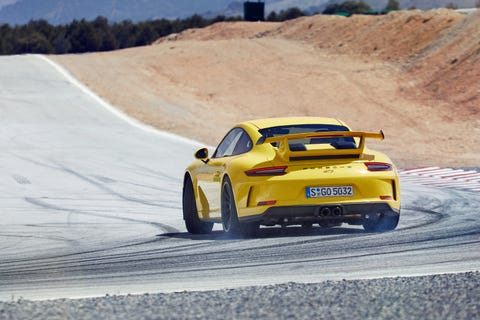
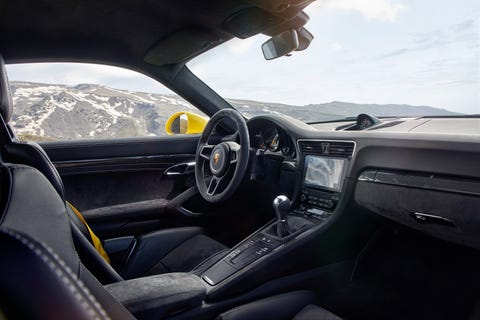
There are quicker, more powerful, and more expensive 911s in the Porsche lineup, but none are as thrilling and rewarding to drive as the 991.2-generation GT3. While other 911 variants got a seven-speed manual, the GT3 used a six-speed with better shift action.

